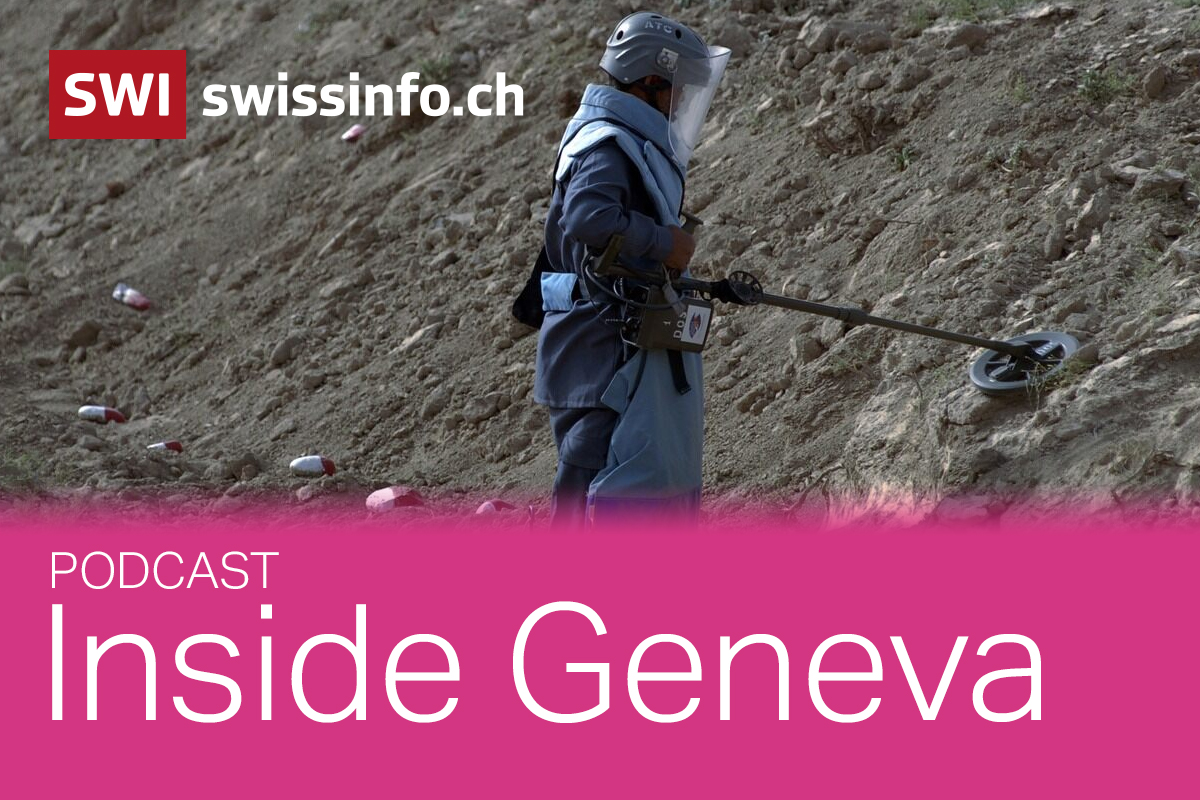
Inside Geneva: the laws that changed the world, and the people who fought for them

In this week’s episode of our Inside Geneva podcast, we revisit our coverage of laws that changed the world.
We start with the Mine Ban Treaty.
“The very day that I entered the hospital for war victims, I realised that all these patients were without one or two legs,” said Dr. Alberto Cairo from the International Committee of the Red Cross (ICRC).
“Every day, just about, somebody was injured by a landmine, and they were rushed off to Khao-I-Dang hospital to have their legs amputated,” said nurse Denise Coghlan, in Cambodia.
The convention was adopted in 1997.
Steve Goose, from Human Rights Watch, says: “This has been an extremely successful treaty because it has saved so many lives, and so many limbs, and so many livelihoods.”
But landmines still cause huge harm.
“Every morning when I get up in the morning I put on my artificial leg. That’s something that I will do every day for the rest of my life,” said Stuart Hughes, a landmine survivor.
We have a convention against genocide, but is it enough?
Ken Roth, human rights expert, says: “People feel like if you don’t call it genocide, then it’s not serious. And that’s a mistake.”
“We have a genocide convention, and we don’t have a crimes against humanity convention, at least not yet,” said Paola Gaeta, professor at the Geneva Graduate Institute.
And the convention against forced disappearances is a protection for families as well as those who are abducted.
Cordula Droege, from the ICRC, says: “Victims of enforced disappearances are not only those who are disappeared but also those who suffer directly from it, such as the relatives.”
“He was taken by armed men, and taken to a car, a red car without a plate number, and he disappeared,” said Aileen Bacalso.
Olivier de Frouville, UN expert on enforced disappearances, adds: “That’s why we describe also for the relatives, who are victims of enforced disappearances, we describe it as torture because this is real torture.”
Inside Geneva hears from the people who campaigned to make our world safer, and asks, are we honouring their laws and their sacrifices?

More
The Swiss Connection Podcast: Hear Swiss science stories for the world

In compliance with the JTI standards
More: SWI swissinfo.ch certified by the Journalism Trust Initiative






























You can find an overview of ongoing debates with our journalists here . Please join us!
If you want to start a conversation about a topic raised in this article or want to report factual errors, email us at english@swissinfo.ch.